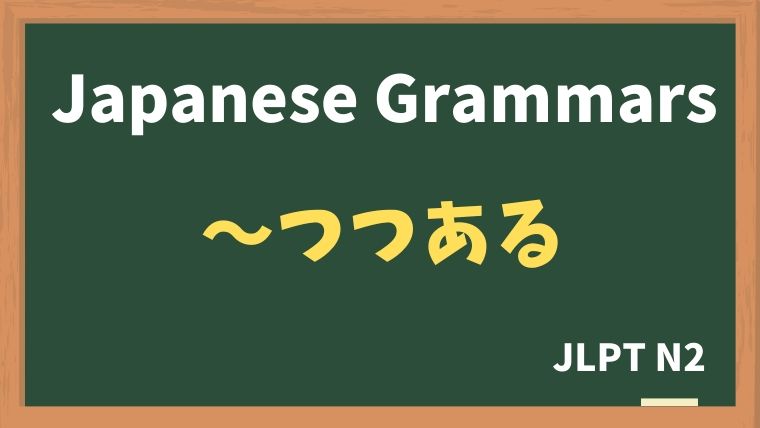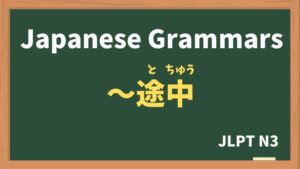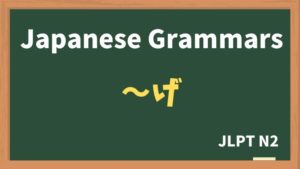
Explanation:〜つつある
fa-check-circleMeaning
"だんだん〜ている"
Used to describe an ongoing process or gradual change. It emphasizes that something is in the middle of happening or developing and is often used to express transitions or trends over time.
fa-check-circleForm
V(masu form)ます + つつある
fa-check-circlePoints
- Ongoing Process: "〜つつある" highlights an action or state that is currently progressing or changing.
- Formal Usage: This expression is typically found in formal speech or writing, such as news reports, academic papers, or business contexts.
- Gradual Transition: It often implies that the change or process is gradual or ongoing, not something that happens suddenly.
fa-check-circleJLPT Level
N3
Sample sentenes
私の国の物価は上がりつつある。
Prices in my country are gradually rising.
昔に比べて、リモートワークをする人も増え、仕事のやり方が変わりつつある。
Compared to the past, more people are working remotely, and the way we work is gradually changing.
日本の景気は悪くなりつつある。
The Japanese economy is gradually worsening.
スマホを使う人が増えたので、公衆電話が減りつつあります。
As more people use smartphones, public phones are gradually decreasing.
まだ3月上旬だが、桜が咲きつつあります。
It is still early March, but the cherry blossoms are gradually starting to bloom.
経済状況は徐々に改善しつつある。
The economic situation is gradually improving.
Vocabulary
| Japanese |
English | |
| 物価 | ぶっか | commodity price |
| - | リモートワーク | to work from home |
| 増える | ふえる | to increase |
| 景気 | けいき | economy |
| 公衆電話 | こうしゅうでんわ | public telephone |
| 減る | へる | to decrease |
| 咲く | さく | to bloom |
| 徐々に | じょじょに | gradually |
| 改善する | かいぜんする | to improve |






